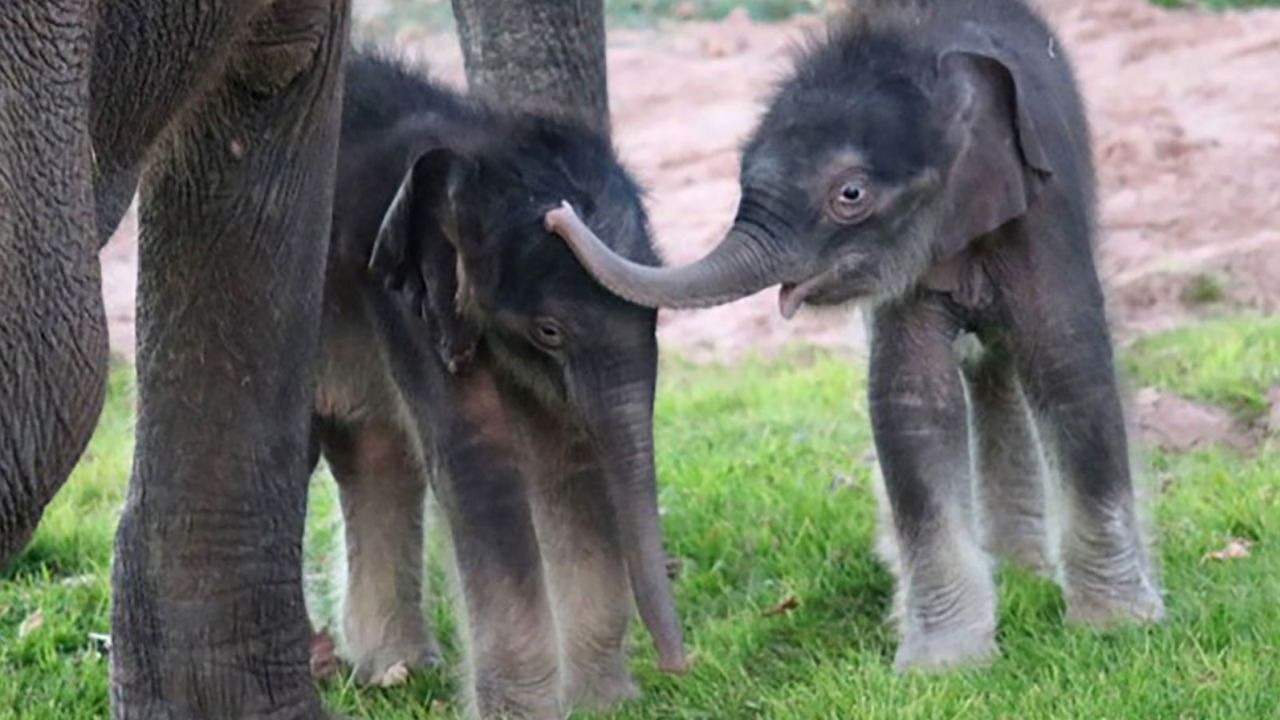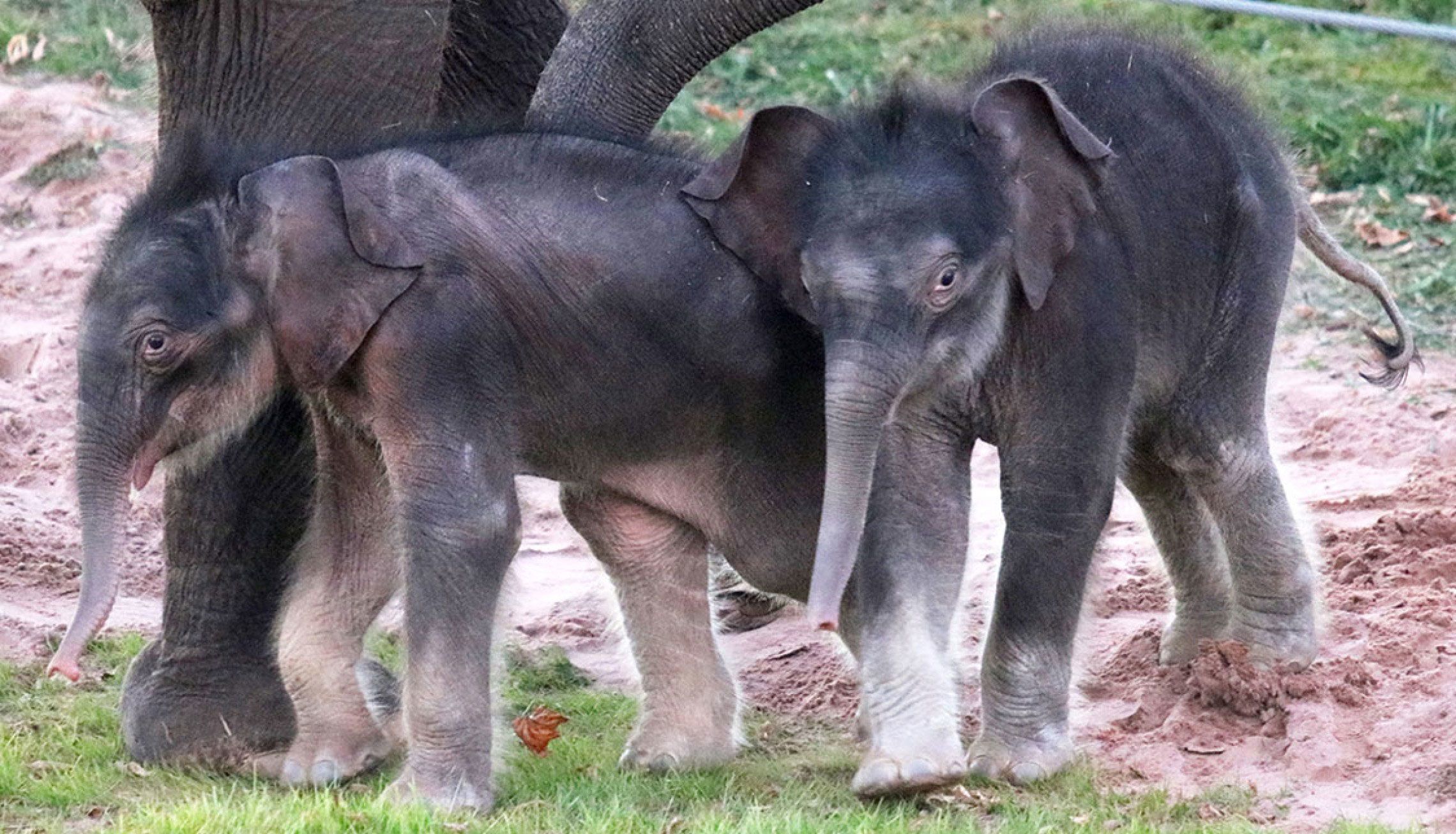In an unexpected turn of events, the Rosamond Gifford Zoo welcomed a pair of Asian elephant twins on October 24, defying the odds and making history in the process. The zoo announced the remarkable birth in a press release, detailing the surprising arrival of two male calves to proud parents Mali and Doc.
Elephant births are already a rare occurrence, with less than 1% resulting in twins. The survival rate for twin elephants is notoriously low, adding to the astonishment of the zoo staff when the first calf made its debut around 2 a.m. Weighing an impressive 220 pounds, the initial arrival was met with excitement. However, Mali surprised everyone by delivering a second male calf, weighing in at 237 pounds, 10 hours later. Unfortunately, the second newborn displayed noticeable weakness compared to its sibling.

Reacting swiftly, the zoo’s animal care team and veterinary staff sprang into action to improve the weaker calf’s condition. Despite the unexpected nature of the twin birth, the team had a specialized milk replacer on hand to supplement the second calf’s diet. The dedicated efforts of the zoo’s staff showcased their commitment to the well-being of Mali and the twins.
County Executive Ryan J. McMahon expressed pride in the exceptional animal care team and the dedicated support of the veterinary staff, emphasizing the historic moment for the Rosamond Gifford Zoo. The birth of elephant twins in the United States is unprecedented, marking a significant achievement for the zoo.

The newly arrived miracle twins are Asian elephants, classified as an endangered species found in South and Southeast Asia, according to information from the World Wildlife Fund. The decline in their population is attributed to factors such as habitat fragmentation, human-elephant conflict, and poaching.
As the twins grow into adulthood, they are expected to reach weights of around 11,000 pounds and stand between 6 and 11 feet tall, based on size estimates provided by the World Wildlife Fund.

Beyond contributing to the preservation of the endangered species, the zoo has additional hopes for the twins’ birth. Specifically, they aim to aid in the fight against a fatal elephant disease. Mali and Doc’s previous offspring succumbed to elephant endotheliotropic herpes virus, a herpes strain that is the primary cause of death among young elephants, as detailed in the release.
Mali’s placentas were sent to Baylor University for research with the goal of developing a vaccine and treatment for the disease, according to the zoo. Ongoing monitoring and testing for the disease will be conducted on the twins.
:max_bytes(150000):strip_icc():focal(749x0:751x2)/rosmund-gifford-elephants-111122-3-a86a5ef15702457f904328f880e4c5f3.jpg)
With the arrival of the twins, the Rosamond Gifford Zoo’s elephant herd now totals eight. Visitors are invited to witness the miracle babies, along with the rest of the herd, at the zoo’s Helga Beck Asian Elephant Preserve. The birth of these twins not only contributes to the conservation of an endangered species but also brings hope in the ongoing battle against a devastating elephant disease.